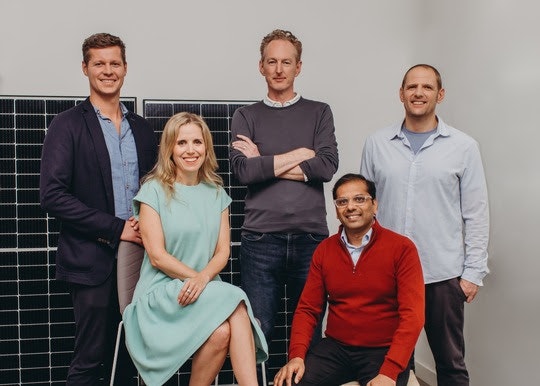VCs just can’t get enough of climate fintech right now. Investors poured $2.9bn into climate fintech companies globally in 2022 — a record high — up from $1.2bn in 2021, according to a new report by VC firm CommerzVentures.
And Europe’s taking a large slice of the pie — the continent’s climate fintech startups brought in 1.4 times more funding than their US counterparts.
So where’s the money going?
France leads the way
France came out on top as the country whose climate fintech startups secured the most funding in Europe in 2022 — a combined $770m. Though that was propped up massively by sustainability ratings company EcoVadis’s mammoth $500m raise in November last year.
France also had a strong 2022 for climate funding across the board, bringing in $2.7bn, the highest amount in Europe, according to Dealroom data.
Carbon accounting is the best-funded sector
Carbon accounting is a strain of software that helps companies measure their carbon emissions by collating a company’s environmental metrics into a platform and calculating associated emissions.
It’s the most “established” subsector within climate fintech, having historically been the investor entry point into the sector and the area that’s attracted the most funding.
Last year was no exception, as carbon accounting startups brought in a total of $970m funding globally. The best-financed player in the sector in Europe is Sweep, a French company which secured a $73m Series B round last year.
Carbon offsetting is the fastest-growing sector
Carbon offsetting startups were the second best-funded out of all climate fintech subsectors. They raked in $505m globally last year — three times the amount they raised in 2021, which also makes it the fastest-growing subsector by funding.
Carbon offsetting is when a company buys carbon credits that represent the removal, or prevented emittance, of CO2 from the atmosphere. It’s a common tool used by industries struggling to lower emissions directly, such as aviation. Credits are generated from things like direct air capture, forestry projects or algal carbon sequestration — where algae is used to remove carbon from the air.
These credits can be bought on the voluntary carbon market, where a slew of startups have appeared in recent years promising to rate or determine the quality of a credit, or act as a broker or marketplace helping companies to buy the credits.
Greenwashers are increasingly being called out and will find it harder to attract funding
The best-funded European startup in the space is the UK’s BeZero, which rates the quality of carbon offsets.
But the fast-growing sector already has its problems. There are risks around double-counting, reliability and durability of credits. And owing to a lack of any universal monitoring standards, determining whether a credit is “carbon neutral” is more of an art than a science.
But this doesn’t seem to put investors off. “Some of the companies in the carbon offsetting sector are working towards solving these problems,” Paul Morgenthaler, managing partner at CommerzVentures, tells Sifted. “Greenwashers are increasingly being called out and will find it harder to attract funding.
“From an investment perspective, these are by far the most interesting companies for us.”
A burgeoning sector
Globally, the majority of climate fintech companies that raised last year were early-stage startups: 56% raised a seed or pre-seed round. Just 18% were raising a Series B round or later.
Morgenthaler predicts the whole sector to perform well across 2023, with new subsectors like biodiversity and natural capital looking particularly interesting.
“In addition to the climate crisis, we have a biodiversity crisis. We are seeing a lot of interesting new approaches for investing in natural capital and preserving biodiversity, and we expect some very successful companies to emerge in that space over time.”
Companies are working on tools to measure the financial ramifications of biodiversity loss on businesses, tokenise biodiversity gains and build “biocredits”, equivalent to the existing carbon credit.
Freya Pratty is a senior reporter at Sifted. She tweets from @FPratty and writes our climate tech newsletter — you can sign up here.


